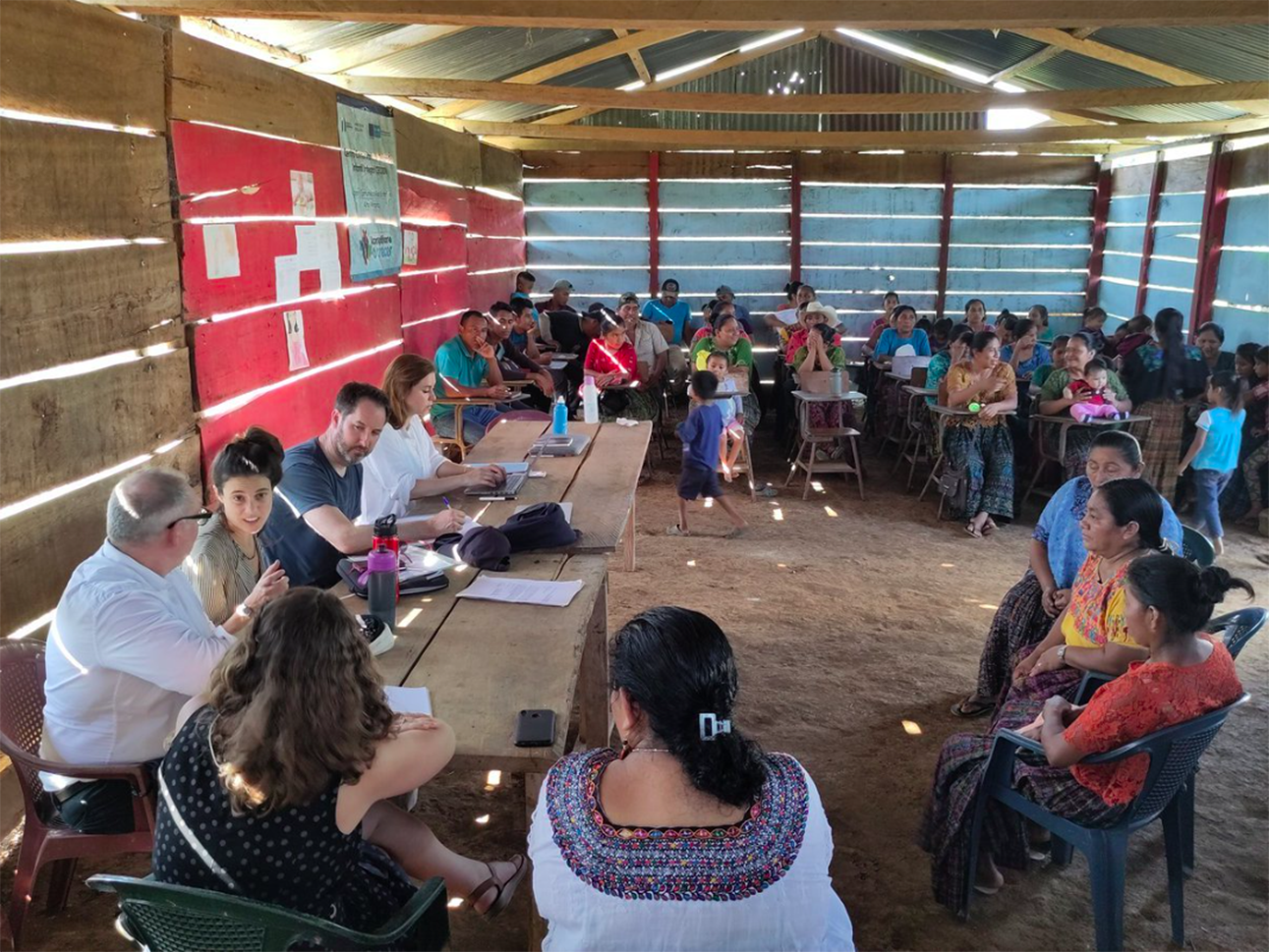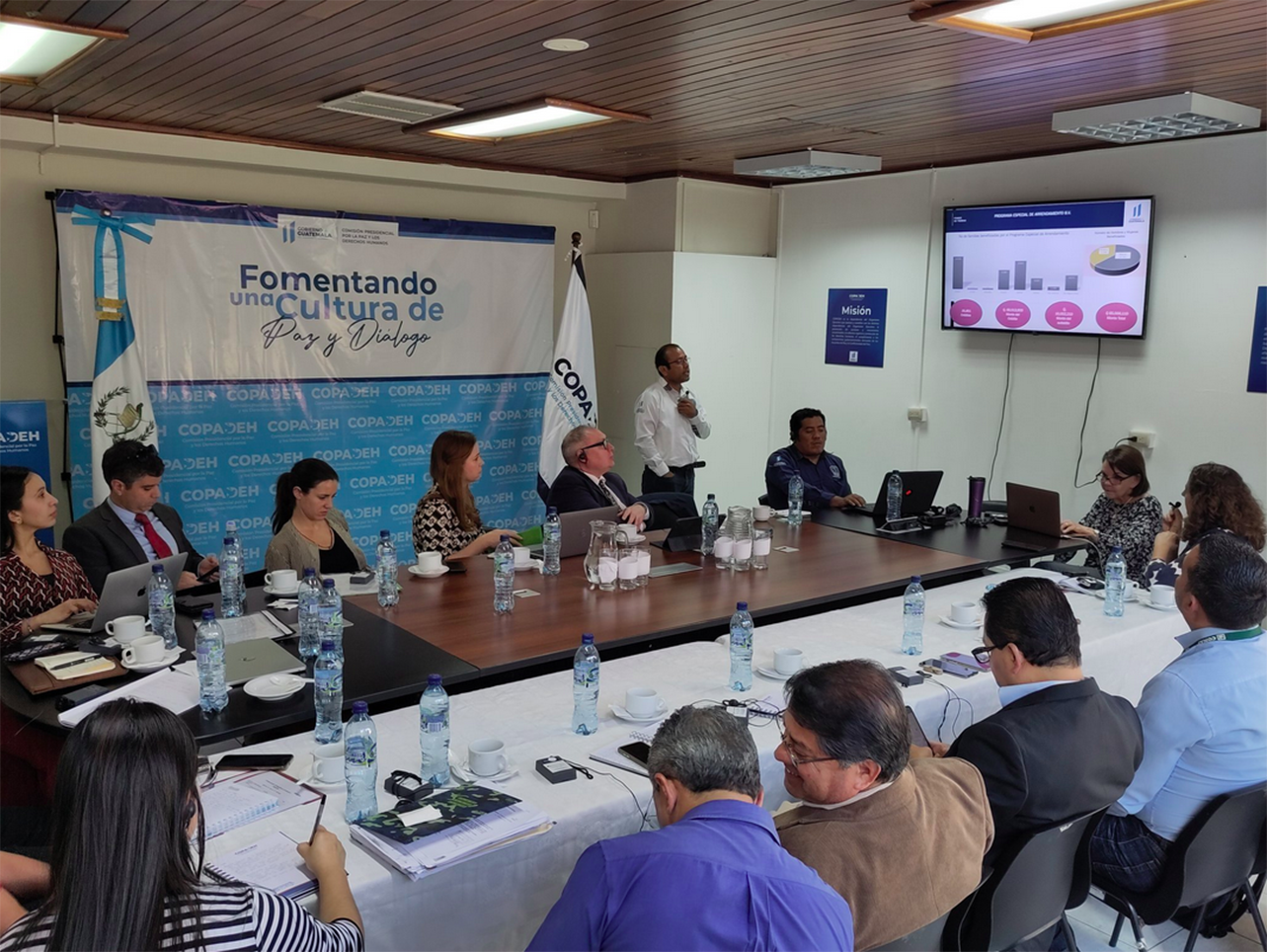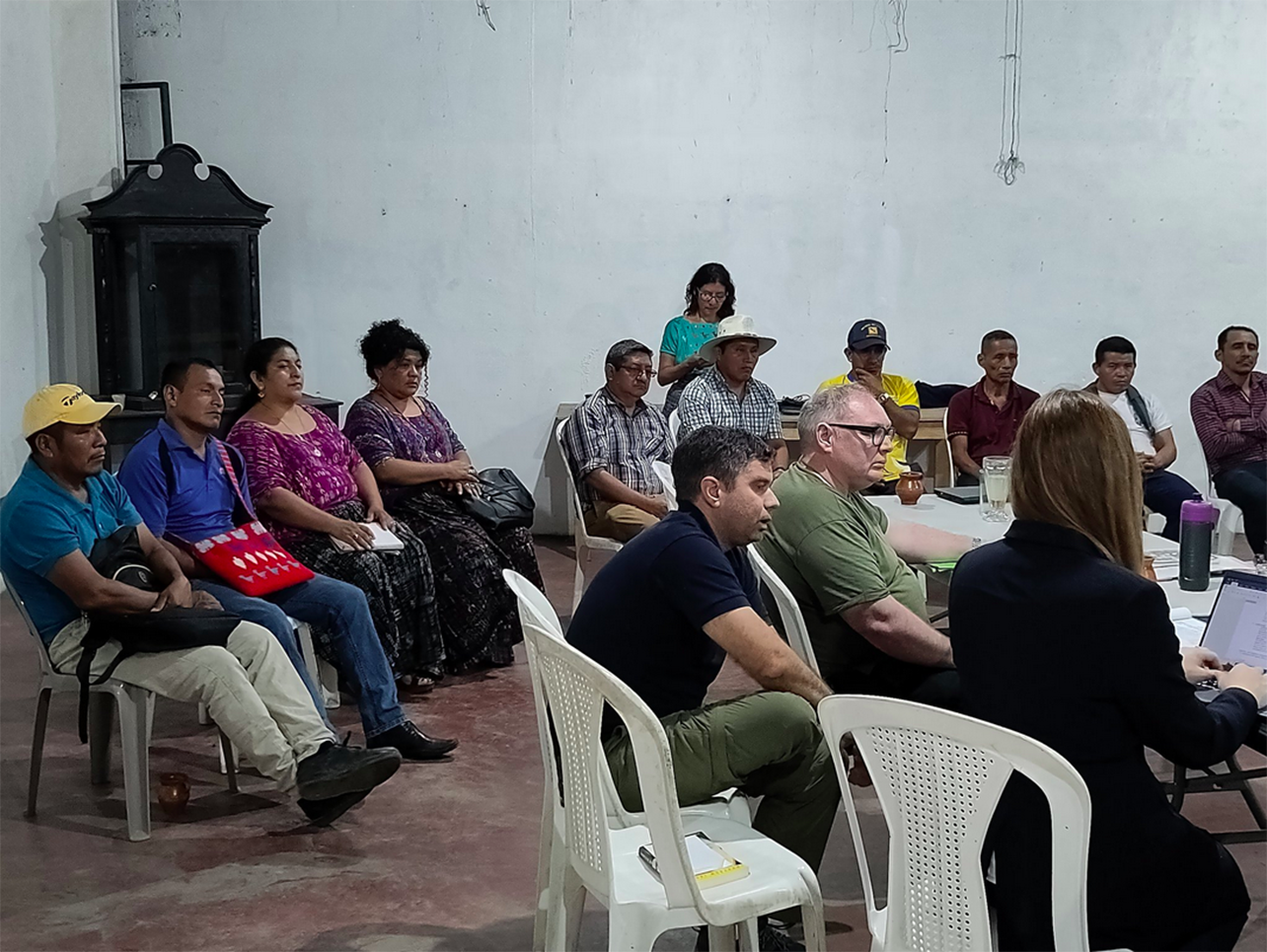The International Delegation of Independent Lawyers travelled to Alta Verapaz, where they heard concerning allegations about violence in the context of forced evictions when they visited Indigenous communities and met with local authorities. They will publish a full report in September 2023, but in their initial observations the lawyers highlighted:
Apparent ‘systemic failures’ in the protection of Indigenous rights.
Indigenous land defenders in the firing line after opposing extractive projects and unsustainable agricultural developments.
The need to guarantee access to justice.
Widespread criminalization of human rights defenders proving an obstacle to ensuring accountability and the rule of law.
This
week an expert group of international lawyers travelled to Guatemala after becoming concerned at UN and civil society reports regarding human rights violations associated with agrarian conflict.The delegation observed first-hand the deteriorating human rights situation in relation to evictions of rural communities in the Alta Verapaz region, and held meetings with a range of civil society organizations including the Verapaz Union of Peasant Organizations (UVOC) and Campesino Committee of the Highlands (CCDA), who receive protective accompaniment from Peace Brigades International (PBI) due to the threats they face.
In Guatemala, those who defend the right to land, territory and a healthy environment have faced threats, intimidation, attacks and killings. In the Alta Verapaz Region in 2022 there was an alarming increase in cases of criminalization against human rights defenders in the region as well as a wave of violent evictions of indigenous communities.
“Indigenous communities in Guatemala face disregard for communal territorial rights, unequal land distribution, racism, violence, and a clear lack of access to justice”, said Camila Zapata Besso, a UK human rights expert. “An effective response is of the utmost urgency, because this betrays the same agrarian dilemmas that the peace agreement sought to repair.”
The delegation, made up of delegates from The Due Process of Law Foundation, London-based Doughty Street Chambers and 33 Bedford Row, and the Peruvian Society of Environmental Law traveled to the capital and to the region of Alta Verapaz to identify rights violations. Through listening, observing and gathering the testimonies of victims of human rights violations, local lawyers, government institutions, the private sector and diplomats, the independent delegation of international lawyers expressed urgent concerns regarding:
The widespread criminalization of Indigenous communities and human rights defenders asserting their rights.
The eviction and displacement of Indigenous communities from ancestral land and the lack of legal, institutional and practical recognition of their collective rights, including the right to decide about the use of their land and resources.
The failure of the State to prevent the use of unlawful force and violence against Indigenous families and rural communities, particularly during evictions.
Reported issues with supply chain due diligence conducted by multinational companies who do business in certain areas, and with Guatemalan counterparts allegedly involved in agrarian conflicts.
The drastic increase in poverty suffered by Indigenous communities, related to weakening food sovereignty and limited access to water and natural resources.
Gendered and sexual violence, labor exploitation, violations to the right of the child, and the right to education.
The lack of access to justice for Indigenous communities.
Threats and attacks, smears and criminalization, against human rights defenders.
The information gathered first-hand will be drawn into a report and used to shine a spotlight on the issues Indigenous communities and the grassroots organisations that support them are confronting. The delegation expects to publish their report at the end of September 2023.




